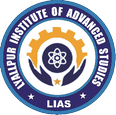SCOPE OF PHARMACY PROFESSION:
1. Pharmacists:
Pharmacists' involvement in the healthcare system grows as new medicines are developed, new resistant bacteria arise, and healthcare delivery methods change.
2. Healthcare Industry:
Pharmacists are the world's third-biggest professional healthcare group, but they still have a long way to go in playing a significant role in Pakistan's healthcare system.
3 .Drugs Processing Labs:
Dispensing and formulation of medications, drug acquisition, distribution, and therapeutic monitoring are all available to pharmacists. They advocate for reasonable drug usage. GUI Lahore 28 and patient-centred treatment with appropriate training in the areas. They also operate in Pakistani army hospitals and pharmaceutical centers outside the nation.
4. Procurement Officer:
Pharmacists work in procurement of raw materials, quality control, production, and quality assurance departments in industrial units to create safe and productive pharmaceutical products using a cost-effective method.
5. Administration & Management:
Pharmacists have progressed to high-ranking executives at the national level thanks to their excellent administrative and managerial abilities. They also work and occupy high-ranking jobs outside of the nation. This is a well-paying profession that contributes to the marketing of pharmaceutical goods to generate foreign currency. Three courses in pharmaceutics marketing, management, and quality management in this program of study would assist in building a solid foundation for achieving this goal.
6. Regulatory Services:
Pharmacists also work with provincial and federal regulatory departments to ensure that the quality, price, import and export of medicines and raw materials used in the pharmaceutical industry are all under strict supervision.
7. Community Services:
Pharmacists also work in community pharmacies, where they handle extemporaneous and non-extemporaneous pharmaceuticals. They are reducing the workload for doctors and surgeons. They also provide counselling and advice to the patients. They also help with epi (expanded program on immunization) and emergency services, such as poison control and adverse medication reactions, among other things.
8. Research & Development:
This is a critical area that requires a high level of knowledge to create medication delivery methods. It's designed for a quick recovery, the host's safety, and a lower patient financial load. Our physical facilities and staff are up to the task of educating these professionals.
9. Drug Information Centers:
The sensible use of medicines is a pressing issue, and pharmacists may play a critical role in this respect by creating these centres. People sitting in any part of our global community may share their experiences and get professional advice. This is unquestionably a new arena for e-commerce and customer service.
10. Drug Testing Laboratories:
These are services provided by pharmacists at provincial and federal drug testing laboratories, who analyse drug samples collected from medical shops, pharmacies, and pharmaceutical companies.
11. Drug Courts:
High-profile experts are required as technical members of provincial or federal drug courts for case assessments and recommendations of punishments by the drug act.
12. Clinical Services:
Clinical pharmacists assess effective medicines and ensure their reasonable usage in various healthcare settings. In this manner, pharmaceutical mistakes are reduced or eliminated, saving the general population from health risks.






























 Reserve Your Seat
LMS Login
Reserve Your Seat
LMS Login

 News & Updates
Downloads
News & Updates
Downloads
